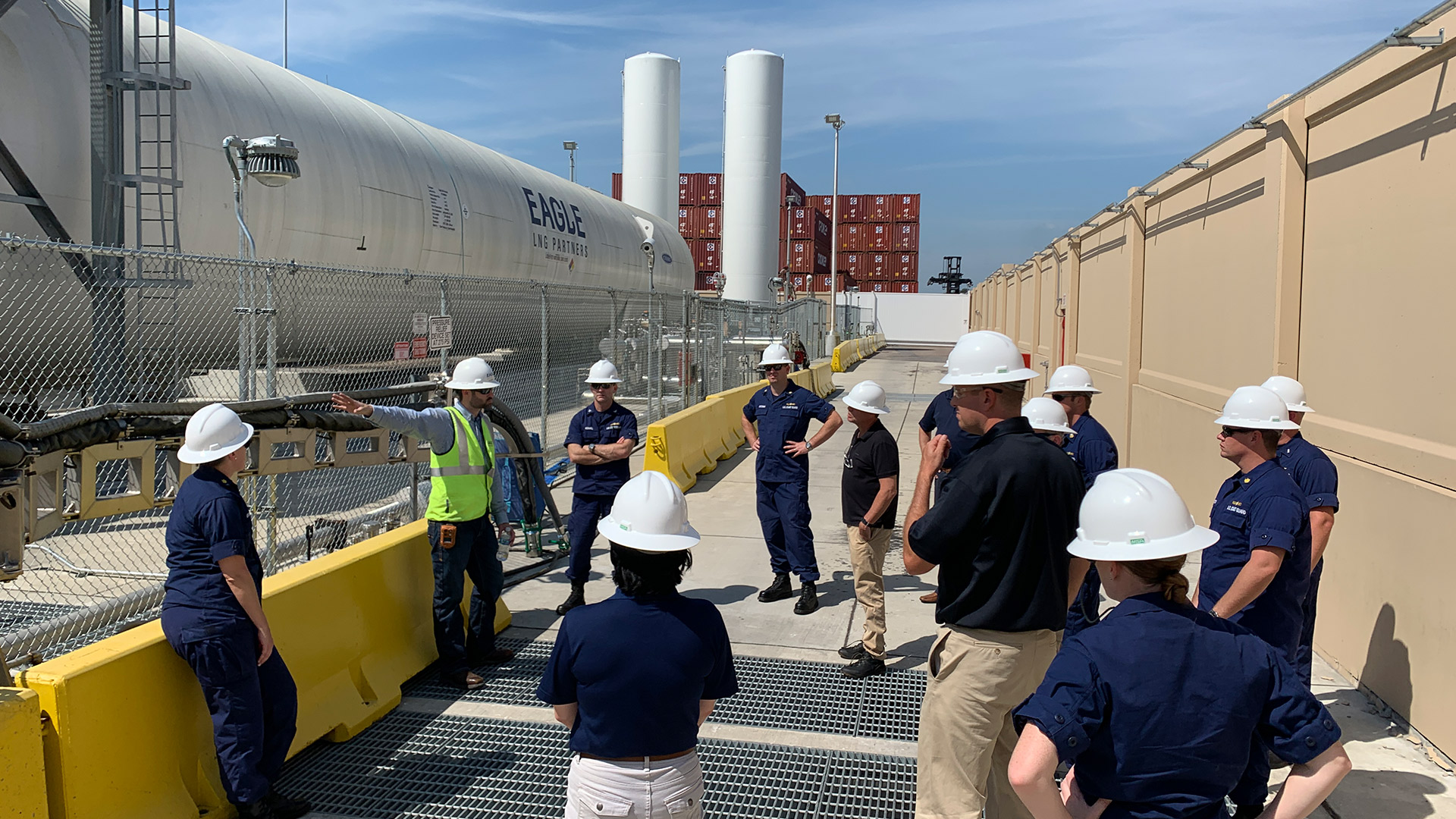Marine Bunkering
Marine transportation is fundamental to world commerce, as it is the most efficient way to move most goods, people and commodities globally.
Over
of LNG Bunkered
As a leading LNG producer and service provider, with incomparable experience in the maritime and oil and gas industries, Eagle LNG has extensive knowledge across the entire LNG value chain – from the wellhead to end consumers. We’re proud to be leading the way in providing innovative infrastructure solutions – as well as fuel supply and contract management – while helping shipping operators reduce the carbon footprint and meet these environmental requirements.
We know a pro-LNG approach within the U.S. maritime industry, coupled with the abundance of inexpensive natural gas in North America, will give yards the opportunity to develop and showcase new competencies, while stimulating an infrastructure development across the United States. We know a valuable partnership between operator and fuel provider is the key. And while our team has a deep understanding of the marine industry, cryogenics and commercial contracts, we know that ultimately, our real success is cultivating dynamic relationships with other compatible, innovative companies driving toward similar goals.
The sulfur content of ship fuel – which can sometimes top 10,000 times the amount as road fuel, causing roughly 14% of the sulfur oxide pollution – remains the leading disadvantage.
With recent sulfur limitations and guidelines implemented by the International Maritime Organization (IMO), ship owners and operators continue to advance innovative compliance solutions for large-scale LNG fueling needs. Benefits like minimal sulfur emissions from LNG-fueled engines – and the sheer efficiency of marine engines that require less service – make the bunkering foundation to support LNG the ideal answer. Additionally, LNG is both easy and economical to ship while being safe, clean and reliable.
Eagle LNG has over +100 successful LNG bunkers and knows firsthand that LNG bunkering takes no longer than traditional fuels or even less time and can be done safely with ‘simultaneous operations.’
For more information on the benefits of LNG as a marine fuel please visit SEA-LNG.


